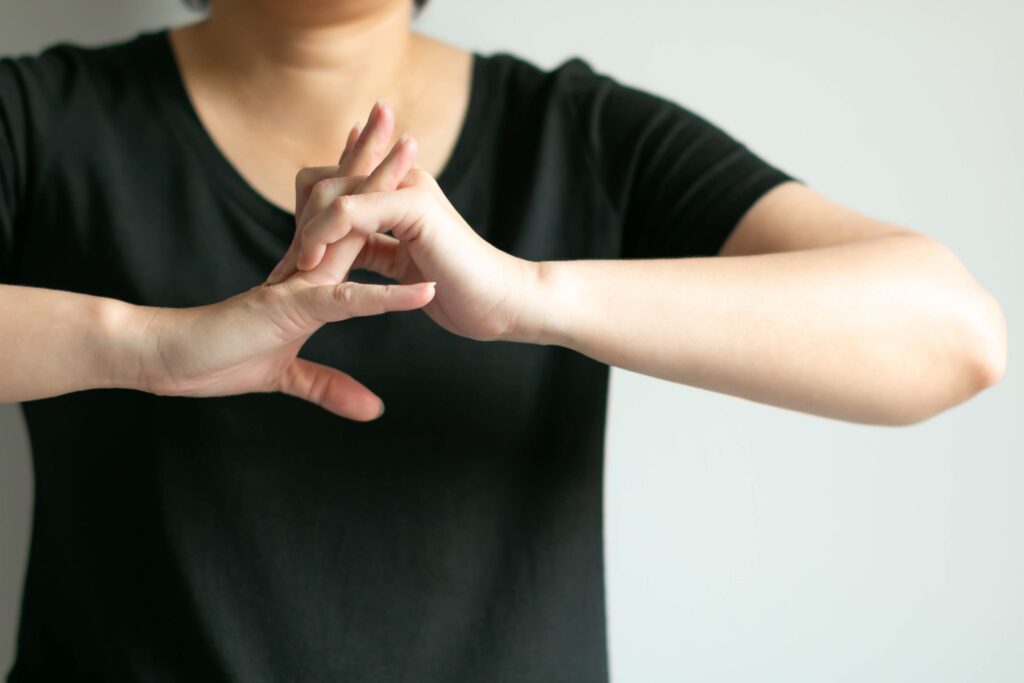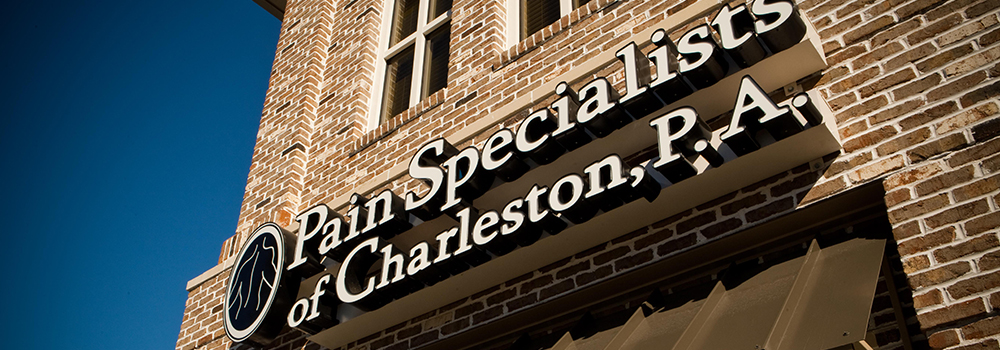Some people love the feeling, while others hate to hear the “pop,” but can cracking your knuckles really lead to arthritis in your hands?
Cracking your knuckles can act as a form of stress relief for some individuals or can be a source of relaxation and tension release for others. But is a movement aimed at easing your anxiety causing potential damage to your hands and fingers?
Arthritis in the hands can complicate the most mundane of movements, from opening jars to buttoning your shirt. Being able to recognize the symptoms and underlying causes of arthritis in its early stages may end up saving you from long-term pain.
Keep reading as we aim to answer the question, “Does cracking your knuckles cause arthritis?” and how our pain management clinic near you can help ease its effects.

What is Arthritis?
Arthritis is defined as inflammation of one or more of your joints, the place where two or more bones meet. The effects of arthritis do not discriminate based on location in the body. However, it is most commonly seen in the hands, knees, hips, feet, and lower back.
Two Main Types of Arthritis
There are two main types of arthritis: osteoarthritis and rheumatoid arthritis.
Osteoarthritis is more common than rheumatoid arthritis and tends to affect the older population. This type causes the cartilage to break down over time and with overuse.
Rheumatoid arthritis, on the other hand, causes the joint lining to swell, resulting in increased pain and joint stiffness. It most often starts in the small joints of the hands and feet but can ultimately affect many areas of the body.
It’s All in the Hands
The hands and wrists are made up of 29 bones, coming together to form many small joints that help you accomplish everyday tasks.
Arthritis most commonly affects three areas of the hand:
- The base of the thumb
- The joint closest to the fingertip
- The middle joint of a finger
If you begin to experience pain in these areas of your hands or in other parts of your body, visit a pain management physician as soon as possible to rule out potential injuries or more severe conditions.
Causes and Symptoms of Arthritis in the Hands (Is Joint Cracking One of Them)?
There is often no specific cause or reason for the onset of arthritis. However, there are several factors that can play a role in its development, including:
- Age: The risk of developing arthritis increases as you age.
- Family history: Some types of arthritis can result from your genetic makeup. If your parents or siblings have the condition, you may be more likely to develop it.
- Sex: Women are more likely to develop certain types of arthritis, such as rheumatoid arthritis and osteoarthritis.
- Prior injury or trauma: Fractures and dislocations, even if properly treated in the moment, are more likely to lead to arthritis.
- Weight: Carrying excess weight can put undue stress on the joints, specifically the knees, hips, and spine.
Symptoms of Arthritis
Symptoms of arthritis can vary depending on the type. In the early stages of hand arthritis, pain is often the first symptom you notice. However, arthritis pain is not as clear as it seems. You may experience the following pain-related symptoms:
- Joint pain that feels dull or leaves a burning sensation
- Stiffness or pain in the morning
- Inconsistent pain
- Pain that occurs hours or even days after increased use
- Simple activities, like holding a pen, become difficult
Other symptoms of arthritis can include swelling, joint deformity, overall weakness or loss of motion, and crepitus. Crepitus occurs when the damaged joint surfaces rub together, causing them to grind, click, or crack.
Joint Cracking and Arthritis: Is There a Connection?
Studies have been conducted to determine whether cracking your knuckles increases your risk of developing arthritis. The answer?
There is no evidence to suggest that cracking your knuckles causes arthritis.
When you crack your knuckles, the resulting “pop” is caused by bubbles bursting in the fluid that lubricates the joints, called the synovial fluid. While this sensation does not directly cause arthritis, chronic knuckle-popping may lead to reduced grip strength or potential injury.
So, although it doesn’t cause arthritis, it might be in good practice to let the knuckle popping go.
Interventional Pain Management Treatments for Arthritis
Arthritis in the hands can be a painful and frustrating condition. While there is no cure, our board-certified physicians can help by providing techniques and tools to help manage your pain without surgery or medication.
Physical Therapy
Physical therapy can be a crucial element of pain management. Hand exercises for arthritis can include a range of motion and strengthening exercises to increase joint flexibility and stability.
Massage Therapy
Massage therapy can be a great way to target and manipulate the body’s soft tissues. It can help reduce muscle tension, improve flexibility, and increase blood flow while simultaneously reducing your overall stress and anxiety.
Joint Injections
After diagnosis and evaluation, our physicians may recommend a joint injection. These injections can help reduce swelling and inflammation or provide further cushion to the affected joints and connective tissues.
Talk to our pain management physicians to see which treatment method is right for you.
Access Your Full Range of Motion–Pain-Free– with Pain Specialists of Charleston

Losing your ability to open a door or hold your phone can be frustrating, and painful. At Pain Specialists of Charleston, our mission is to provide ways to address pain management near you using techniques and tools that don’t require surgery or habit-forming medication.
Let us help you reclaim your quality of life and get back to doing the little things in life. Schedule a visit to our clinic for pain management in Charleston, SC today!
Request Appointment | Contact Us | Meet Pain Doctors | Visit Us
Additional Helpful Articles:
What Should I Expect During My First Pain Management Appointment?
Interventional Pain Management: Everything You Need to Know
What Does a Pain Management Physician Do?
What’s the Best Leg Pain Treatment Without Surgery?
When Should I See a Doctor for Runner’s Knee?
Why Do Side Sleepers Wake Up to Shoulder Pains?
What are the Reasons for Random Pains in My Buttocks?
How Can I Get Immediate Relief for Sciatic Pain?
Get to Know Pain Management Physicians:
Our Services:
Diagnosis | Treatment | Interventional Pain Management | TRICARE | Wellness | Clinical Trials | Worker’s Compensation | Neurology | Imaging/ MRI
Published July 2024
